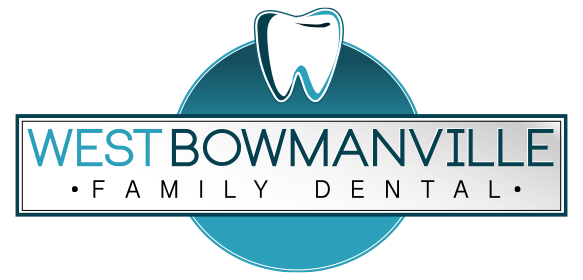A chipped, broken or stained tooth can detract from an otherwise attractive smile. Dental bonding is a quick and non-invasive treatment, and it is quite affordable too.
What is Dental Bonding?
Dental bonding is a procedure to cosmetically improve the appearance of a tooth, using tooth-coloured composite resin material which is applied or bonded directly to the tooth surface before it is hardened, shaped and polished. It’s an excellent treatment for mending chips or cracks in teeth, and it can also be used to close or minimize gaps in between teeth. If you have a tooth that is too small, slightly rotated or not quite the right shape, dental bonding might be suitable for reshaping or recontouring the tooth. The composite resin material used in dental bonding is the same material used to mend small to medium-sized cavities in teeth.
This material is extremely aesthetic, and West Bowmanville Family Dental keeps a wide range of different shades in stock so our dentist here in Newcastle can always closely match the colour of any bonding work to your natural tooth, using several different shades if needed!
What Is the Procedure for Dental Bonding?
The procedure to bond your teeth is quick and painless. First, it’s necessary to lightly etch the tooth surface using a special liquid that roughens the surface, making it easier for the composite resin to bond strongly to the tooth. Once the etching liquid is rinsed off, and the tooth is dried, the composite resin is placed onto the surface to be bonded. It is hardened frequently using a special curing light until all the bonding material is in place. Finally, the composite is smoothed, shaped and polished, creating a natural looking lustre that looks just like a real tooth.
What Are the Pros and Cons of Dental Bonding?
Dental bonding can be a more affordable alternative to having porcelain veneers in Clarington, but it’s a good idea to be aware of the potential pros and cons of this treatment.
Potential Advantages of Dental Bonding
Advantages of dental bonding include the price. Some dental insurance plans may even cover some or most of the cost of bonding and especially if it is necessary to protect the integrity of a tooth, for example, when it’s used to fill a cavity or mend a nasty chip in a tooth. Treatment is relatively quick and typically only requires one visit to our dental office. Sometimes dental anesthesia may not even be necessary unless we need to prepare a tooth, for example, removing any areas of decay. When this treatment is used as an alternative to porcelain veneers, it can be more conservative. With porcelain veneers, it’s usually necessary to remove a small amount of tooth material whereas this may not be necessary with dental bonding or the amount removed is minimal.
Potential Disadvantages of Dental Bonding
Unlike porcelain veneers and porcelain crowns in Courtice, dental bonding can become discoloured over time. Dental bonding can look good for several years, but if you smoke or like highly coloured foods and beverages, these can stain composite resin. Also, composite resin is less durable compared to porcelain veneers and crowns, and bonded areas will need restoring more frequently.
Dental bonding can be an affordable and easy way to refresh the appearance of your smile and is a great solution for many people, but it isn’t appropriate for everybody. The easiest way to discover if it’s right for you is to ask our dentist during your next checkup here at West Bowmanville Family Dental.

